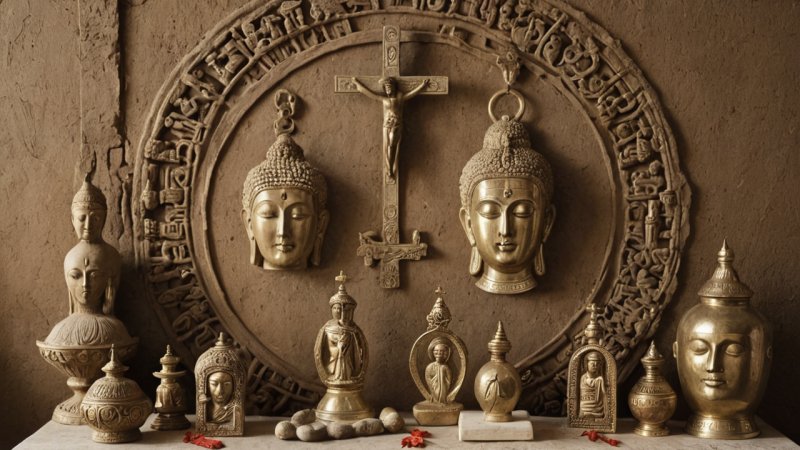The interplay between religion and cultural development has been a fundamental aspect of human civilization throughout history. From ancient rituals to modern practices, religion has influenced various aspects of life, including art, social norms, and moral values. This article explores how religious beliefs and institutions have shaped cultural identities and their significance in societal progress.
Religion often serves as a foundation for cultural practices, providing a framework for community cohesion and shared values. For instance, the festivals and traditions rooted in religious beliefs foster a sense of belonging among individuals. The influence of religions such as Christianity, Islam, Hinduism, and Buddhism can be seen in the art and architecture of different societies. Iconic structures like cathedrals, mosques, and temples are not only places of worship but also masterpieces of cultural expression that reflect the unique artistic styles of their respective eras.
Moreover, religion plays a pivotal role in shaping moral and ethical standards within cultures. Many societies derive their laws and codes of conduct from religious texts, which guide individuals in their daily lives. The Ten Commandments in Christianity and the Five Pillars of Islam are prime examples of how religious teachings can inform social behavior and expectations. This moral framework often leads to a collective identity that binds community members together, promoting social harmony.
Additionally, religion influences language and literature. Sacred texts, such as the Bible, the Quran, and the Bhagavad Gita, have not only provided spiritual guidance but have also inspired countless literary works, enriching the cultural tapestry of societies. The themes of love, morality, and the human condition explored in religious literature resonate deeply with audiences, transcending time and geographical boundaries.
The impact of religion on cultural development is also evident in the realm of education. Historically, many of the world's earliest universities were established by religious institutions. These institutions played a crucial role in the preservation and dissemination of knowledge. Even today, religious organizations continue to influence education systems, often emphasizing the importance of ethical and moral education alongside academic learning.
However, the relationship between religion and culture can be complex. While religion can unite people, it can also create divisions. Different belief systems may lead to conflicts, affecting social cohesion and cultural development. Understanding this duality is essential in recognizing the nuanced role that religion plays in shaping societies.
In conclusion, the influence of religion on cultural development is profound and multifaceted. From art and morality to language and education, religion has left an indelible mark on the cultural identities of communities worldwide. As we navigate a rapidly changing world, acknowledging the historical and contemporary significance of religion in culture can foster greater understanding and appreciation of the diverse tapestry of human experience.






